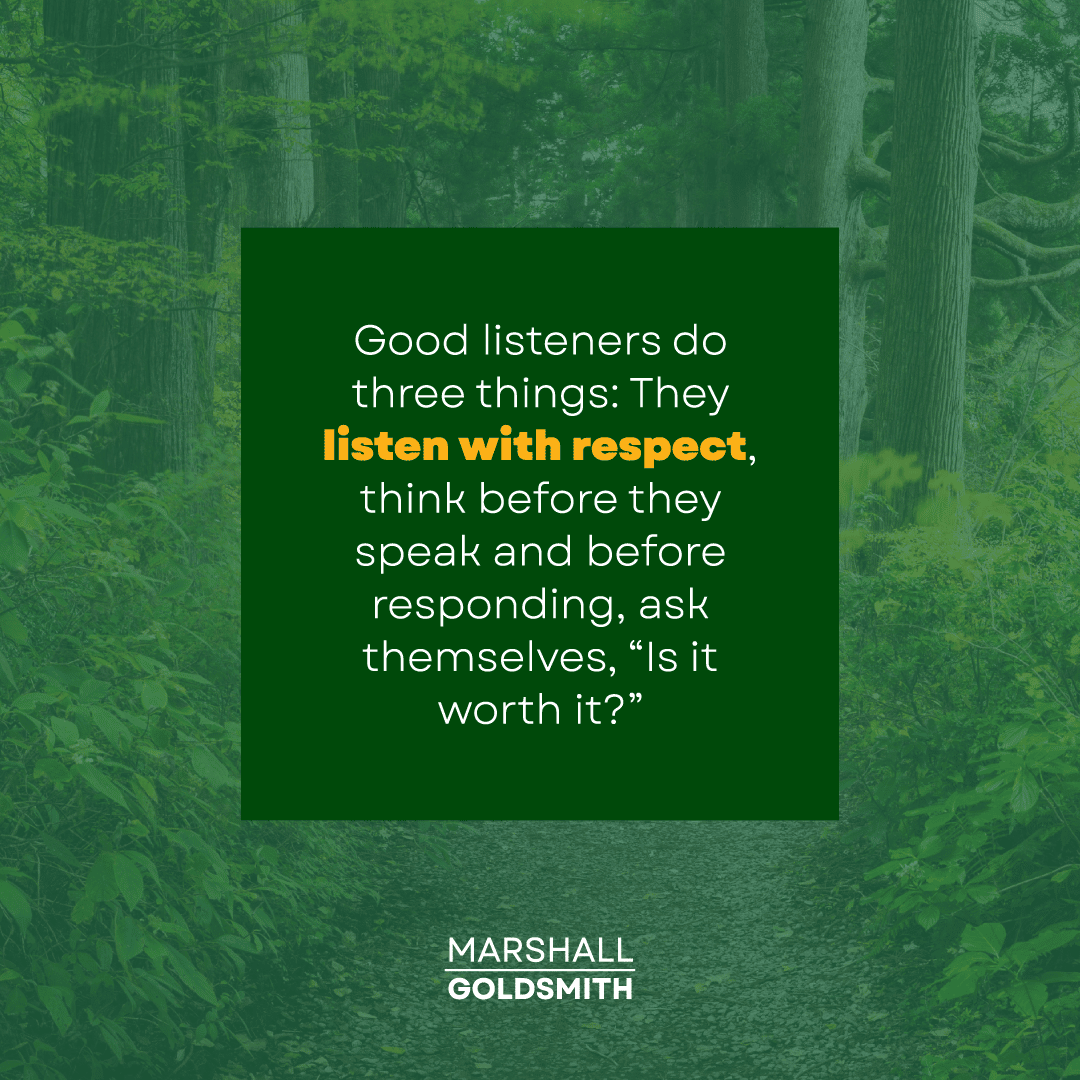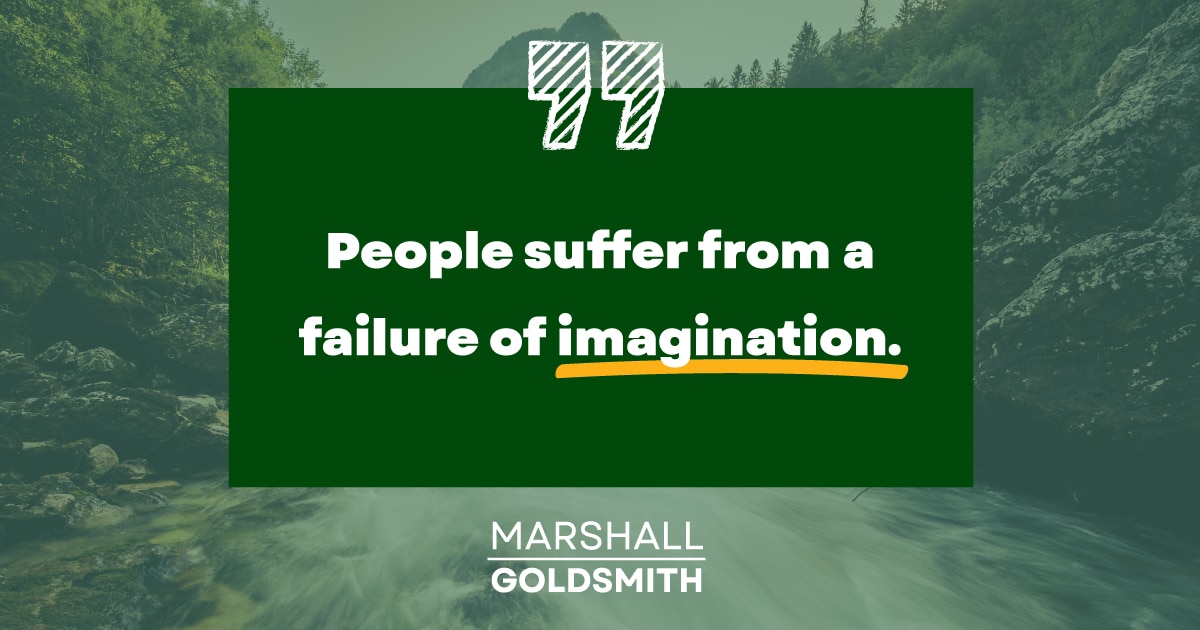Playing Favorites By Marshall Goldsmith There’s a reason I devote...
If we’re lucky, every once in a while, something or someone comes along and unexpectedly opens our eyes to our faults and helps us strip away a delusion or two about ourselves. It doesn’t happen often, and it can be tough to take initially. But when it does occur, we should consider ourselves lucky.
Psychologists have all sorts of schemata to explain us to ourselves. One of the more interesting ones is the Johari Window, a four-pane grid that divides self-awareness into what is known and unknown about us to other people and what is known and unknown about us to ourselves. (Despite the exotic-sounding title, the Johari Window is actually named for two real characters, Joe and Harry.)

According to this arrangement, the things that others know about us are public knowledge. The things we know and they don’t are private knowledge. What neither they nor we are aware of is, well, unknowable, and therefore not something we can really address.
For someone like me, the most interesting quadrant in this four-part diagram is the stuff others know about us that we don’t know about ourselves. The reason I find it so fascinating is that revealing these blind spots to us often produces moments of insight that can lead to tremendous personal growth.
I’ve had my share of these revelations, but the most significant came when I was a 28-year-old doctoral candidate at the University of California, Los Angeles. Back then, in the late-1960s era of free love and Woodstock, I thought of myself as being a little more insightful – hip, even – than the other people around me. I believed myself to be intensely involved in
things such as self-actualization and uncovering profound meanings in life.
At the time, I was a student in a small class led by a very wise and worldly teacher, Dr. Bob Tannenbaum, who was revered at UCLA and in psychology circles the world over. He invented the term “sensitivity training” and had published the most influential papers on the subject. He was a god to me.
In Tannenbaum’s class, we were encouraged to discuss whatever we wanted. I took this freedom as a license to rail against the shallow, materialistic residents of Los Angeles. For three weeks, I delivered rants about how screwed up they all were.
“All they care about is impressing others,” I said. “They don’t understand what is deep and important in life.”
After enduring this babble for some time, Tannenbaum asked, “Marshall, who are you talking to?”
“I am talking to everybody in the group,” I said, unsure of where he was going with this line of questioning.
“I don’t know if you realize this, but each time you have spoken, you have addressed just one person and seem interested solely in that person’s opinion. Who is that person?”
After a few moments of careful consideration, I replied, “You.”
“That’s right – me,” he said. “There are 12 other people in this room. Why aren’t you interested in any of them?”

Having dug myself into a hole, I decided to dig even further. “Dr. Tannenbaum, I think you can understand the true significance of what I’m saying,” I said. “I think you understand how screwed up it is to try to impress people all the time. I believe you have a deeper understanding of what’s really important in life.”
“Marshall, is there any chance that for the past three weeks, all you’ve been trying to do is impress me?”
I was stunned by this obvious lack of insight. “Not at all! You haven’t understood one thing I’ve said! You’ve totally missed my point and, frankly, I’m disappointed by your lack of understanding,” I said.
He stared at me for a few seconds, scratched his beard and said, “No, I think I understand.”
I then looked around and saw 12 people who were clearly thinking, “Yes, we understand too.”
I still shudder with shame at the memory of my childish outlook back then. But I needed this painful, unsolicited feedback to demonstrate how the world really saw me and make changes for the better.
If we can stop, listen and think about how others see us, we have a great opportunity. We can compare the self we want to be with the self we present to the world, and then we can work to close the gap between our professed values and actual behavior.
Although he is no longer with us, I still say, “Thank you, Dr. Tannenbaum.”

Adding Too Much Value Won’t Get You There By Marshall...
C-Suite Master Class: No, But, However By Marshall Goldsmith Continuing...
The Doerr Institute: Expanding the Market for Coaches By Marshall...
Making Leadership Development Part of the College Degree at Rice...
Sanyin Siang – Winner of the Thinkers50 Marshall Goldsmith Coaching...
Thinkers50 Marshall Goldsmith Distinguished Achievement Award in Coaching – Nominees...
Leading with Influence: What Is Influence360°? By Marshall Goldsmith Founder...
Are You a Dominator, Manipulator, Persuader or Influencer? By Marshall...
Leading with Influence: Redefining Modern Influence Part 2 By Marshall...
My mission is simple. I want to help successful people achieve positive, lasting change and behavior; for themselves, their people, and their teams. I want to help you make your life a little better. With four decades of experience helping top CEOs and executives overcome limiting beliefs and behaviors to achieve greater success, I don’t do this for fame and accolades. I do this because I love helping people!
As an executive educator and coach, I help people understand how our beliefs and the environments we operate in can trigger negative behaviors. Through simple and practical advice, I help people achieve and sustain positive behavioral change.